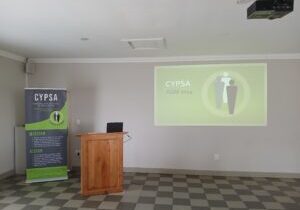It was with renewed confidence that CYPSA recently read of the Central Drug Authority’s submission to Parliament’s portfolio committee on health, with regard to the Medical Innovation bill which proposes the legalization of dagga for medicinal purposes in South Africa and of the Bill’s subsequent rejection by Parliament..
We are in full agreement with the CDA’s sentiments that the bill was “confusing and if it remains in its current form it could result in more social ills and drug abuse in the country,” and that decriminalization of cannabis could result in significant public health risks.
We as an organization are no stranger to the harmful effects of dagga when used recreationally, having worked first-hand with over 10 000 of the country’s drug addicted youth in the last 48 months alone. Based on our experiences and findings we stand behind Mr. Bayever’s statement that “In a country such as South Africa, which is overburdened by the effects of alcohol and drug abuse, legalizing cannabis for other uses could add to the burden of abuse, especially among youths.” CYPSA cannot therefore support the proposed legalization of marijuana for recreational purposes in South Africa under any circumstances whatsoever. However, we are still left with the medical issue to consider.
While the Concerned Young People of South Africa are not against the use of dagga for medicinal purposes per se, we must confess to having major concerns surrounding the way the issue has been handled to date.
First and foremost, it is our firm belief that this is not an issue that can be decided by emotions, popular or public opinion or anecdotal evidence. This is an issue that is firmly rooted in the realm of science, and the safety and suitability of cannabis and its derivatives for medicinal use is something that can either be confirmed or disproved by scientific means alone.
There is as yet no clear definition of medical marijuana in the South African context, and we fear that the public are being misled as a result. For example, there are groups in South Africa who claim to smoke marijuana for medical reasons, whereas science has already proven that to ingest any substance via this method is harmful to the human body in the extreme! A clear and concise definition of precisely what constitutes medicinal marijuana must be decided upon and presented openly to the public of South Africa for their consideration, and science should dictate this definition.
All substances need to pass through extensive testing and strict screening processes before they can be registered with the Medicines Control Counsel and other medical bodies in South Africa. This process can take several years of intensive study. Side effects of any substance must be documented. Cannabis itself contains thousands of metabolites (chemicals produced when a substance is broken down by the body), all of these must be thoroughly tested and documented before cannabis products can be deemed safe and registered and released as medicine fit for public consumption.
This process and the usual best practices should under no circumstances be ‘fast tracked’ or findings ignored due to public pressure and demand. Interference in these processes should not be tolerated and the fact remains that it has yet to be determined, scientifically, whether the health risks associated with the use of dagga based medications outweigh the benefits thereof.
Of equal concern to CYPSA is the way in which the line dividing the move to legalize dagga for medicinal purposes and the agendas of those who would see dagga legalized for recreational use have become blurred in the extreme. We wish to see a definite separation, by all involved in these proceedings, from any group who appears to be making use of the Medical Innovation bill as a “Trojan Horse” or as a means to smooth the way for the legalization of the recreational use of marijuana in South Africa. We are pleased to note that representatives from most major stakeholders have made this differentiation, and their stance on the matter (that the medical issue is the only issue they are involving themselves with at this point, and that it is the only issue under discussion at this point in time), very clear in recent interviews.
It appears that many proposed dagga based medications are aimed at the treatment of pain in cancer patients specifically. However, they do not cure cancer and are only used as supplements to existing treatments for cancer symptoms. We fear that many may be supporting this bill as they are under the false impression that dagga derivatives will cure their cancer or that these new medications will be far superior to those already in existence. CANSA itself has stated that this is in fact not the case.
We insist that the Medical Innovation Bill should be rewritten in an effort to make it much more concise with regards to its scope and as to what will and will not be permitted, should the bill be passed. Again, a clear and concise definition of medicinal marijuana should be included in the document. Commercial and industrial applications should be excluded from the document as it is medical applications that are under consideration. No room should be left for those who wish to operate outside of the intent for which the bill was originally created as many are seeking to do.
Extremely restrictive and fool proof controls and regulatory measures are crucial. There are individuals and groups who wish to abuse this bill. Reports of the abuse of new legislation subsequent to the legalization of cannabis for medicinal purposes in some states in the USA and other countries appear in the headlines often, and we wish to avoid the same happening in South Africa.
MP Mr. Narend Singh has stated that the bill will in fact be amended, more specifically those sections dealing with the proposed commercialization and industrialization of cannabis, and we look forward to viewing the amended version of the Medical Innovation bill when it is published.
We trust that all parties involved in this process have, as do we, the greater good of the Republic of South Africa and its citizens at heart. Dagga is a dangerous substance and must be a handled with the utmost care by all concerned. We cannot afford to place citizens in harm’s way as a result of hasty decisions or by succumbing to pressure from the public or fringe groups, when such important and far reaching decisions must be made and when so much is at stake.
CYPSA knows dagga and the destruction it causes, and will cause, should proper procedures not be followed, wisdom and caution not applied, and mistakes made in this process.



